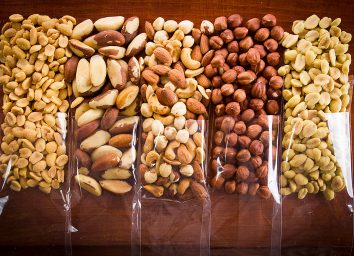Secret Side Effects of Eating Walnuts, Says Dietitian
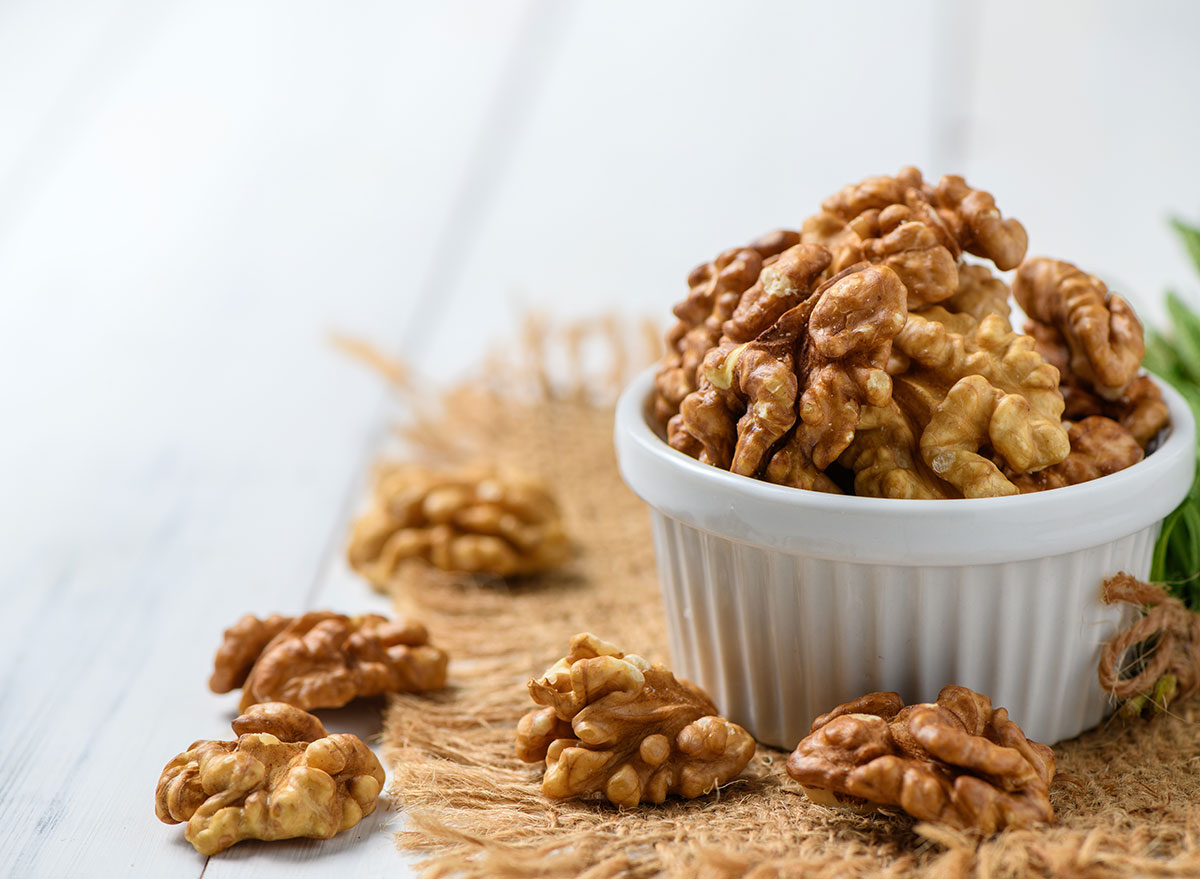
What's not to love about the humble walnut? From the major nutrients that it provides to the versatility it offers in the kitchen, this tree nut is an all-around awesome food—a superfood, if you will.
Walnuts are jam-packed with good-for-you nutrients. From plant-based proteins to fiber to ALA omega 3 fatty acids, these little nuts pack a punch in the nutrition department. And when it comes to antioxidants, know that walnuts appear to have more antioxidant activity compared to any other nut out there.
Walnuts are known to be a delicious addition to baked goods and a perfect topping to salads and other dishes. But less known are some secret side effects that you may experience when you include walnuts in your daily life. If you happen to be a walnut lover, here are six secret side effects that you may experience when you are chowing down on your favorite nut. Read on, and for more on how to eat healthy, don't miss 7 Healthiest Foods to Eat Right Now.
You may experience lower cholesterol.
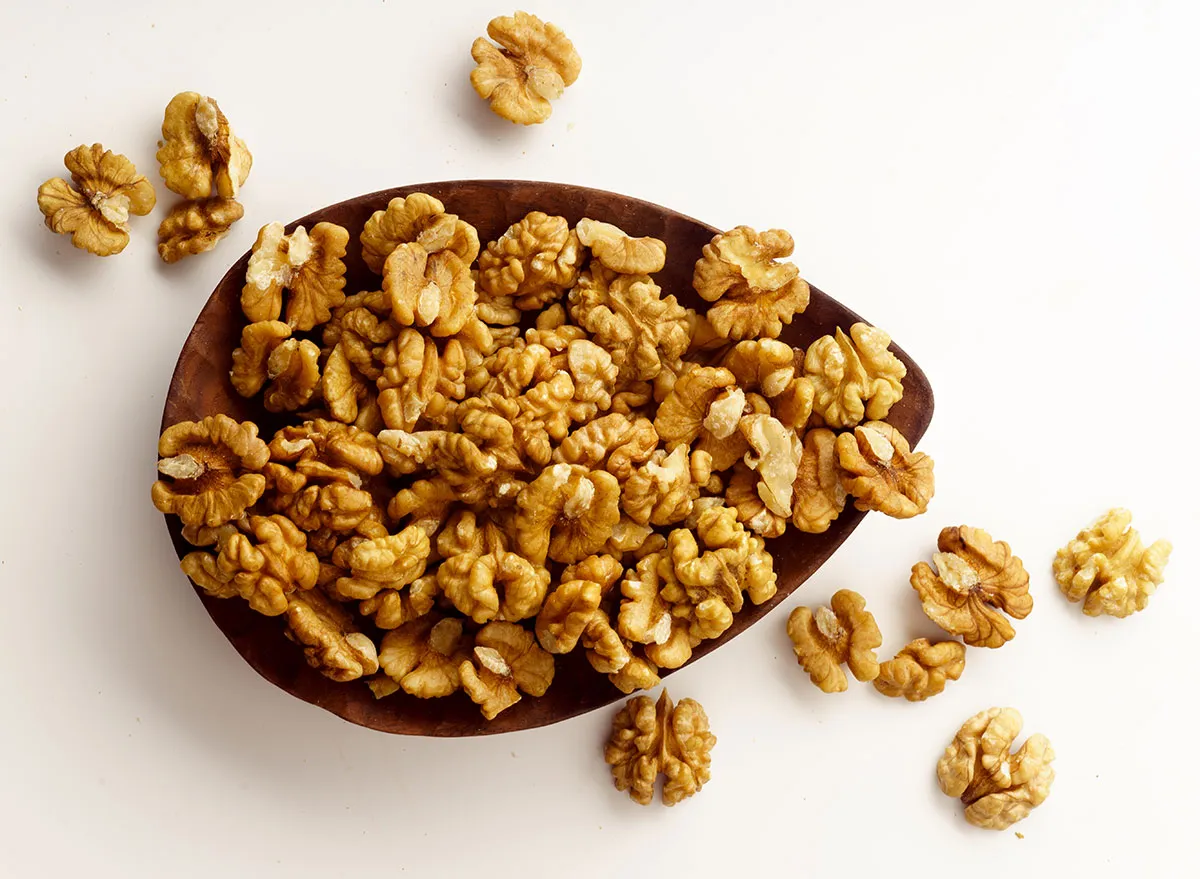
More than 10% of Americans do not have ideal cholesterol levels and could benefit from taking steps to lower their concentrations. A study published in Circulation found that regular daily walnut consumption is linked to sustained lower levels of cholesterol among 708 healthy older adults who included walnuts as part of their diet for 2 years.
You may live a longer life.
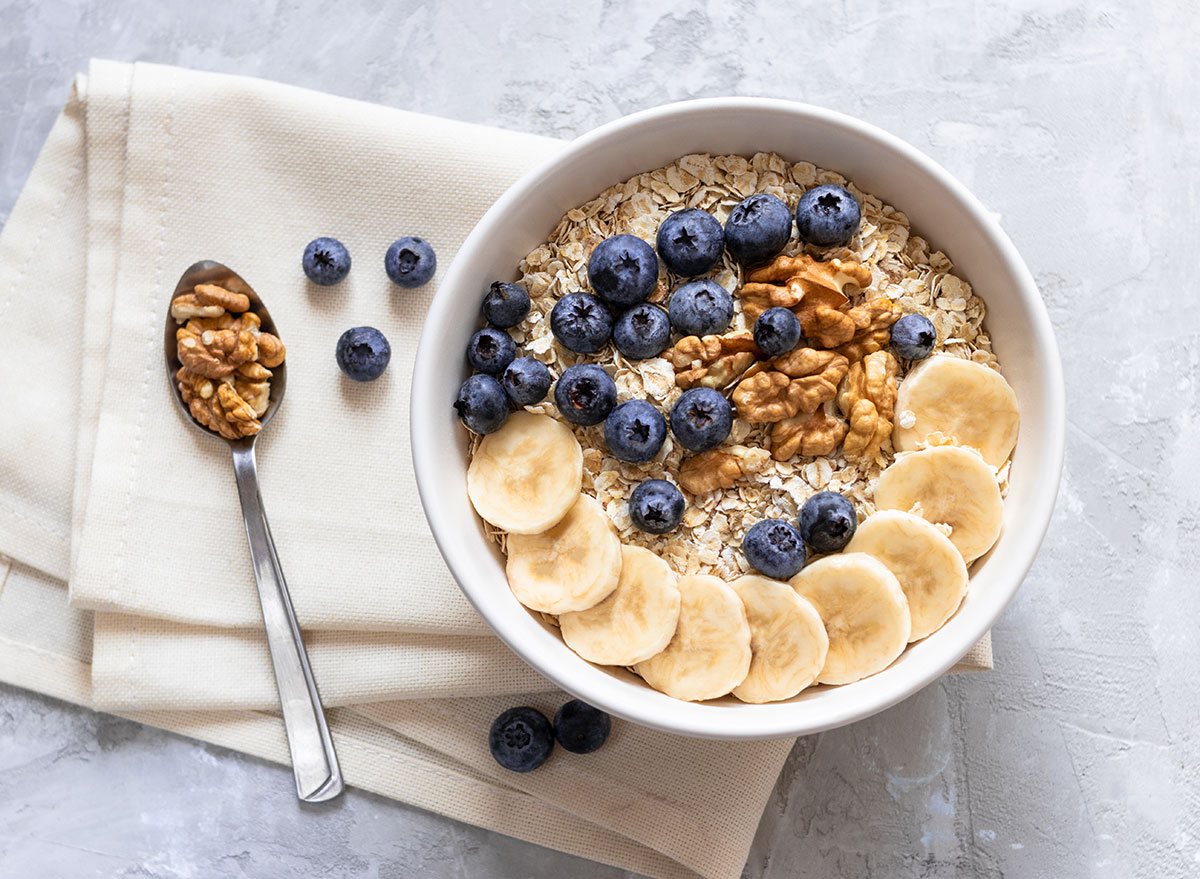
Until somebody discovers the true Fountain of Youth, if you want to live longer, your best bet appears to be leaning on walnuts to help accomplish your quest.
In a study published in Nutrients, results show that higher walnut consumption—both in terms of the amount and frequency—may be associated with a lower risk of death and an increase in life expectancy among older adults in the U.S., compared to those who do not consume walnuts.
READ ON: Want to Live Longer? Do This One Simple Thing Every Day, Says Study
Your body may have a hard time absorbing iron.
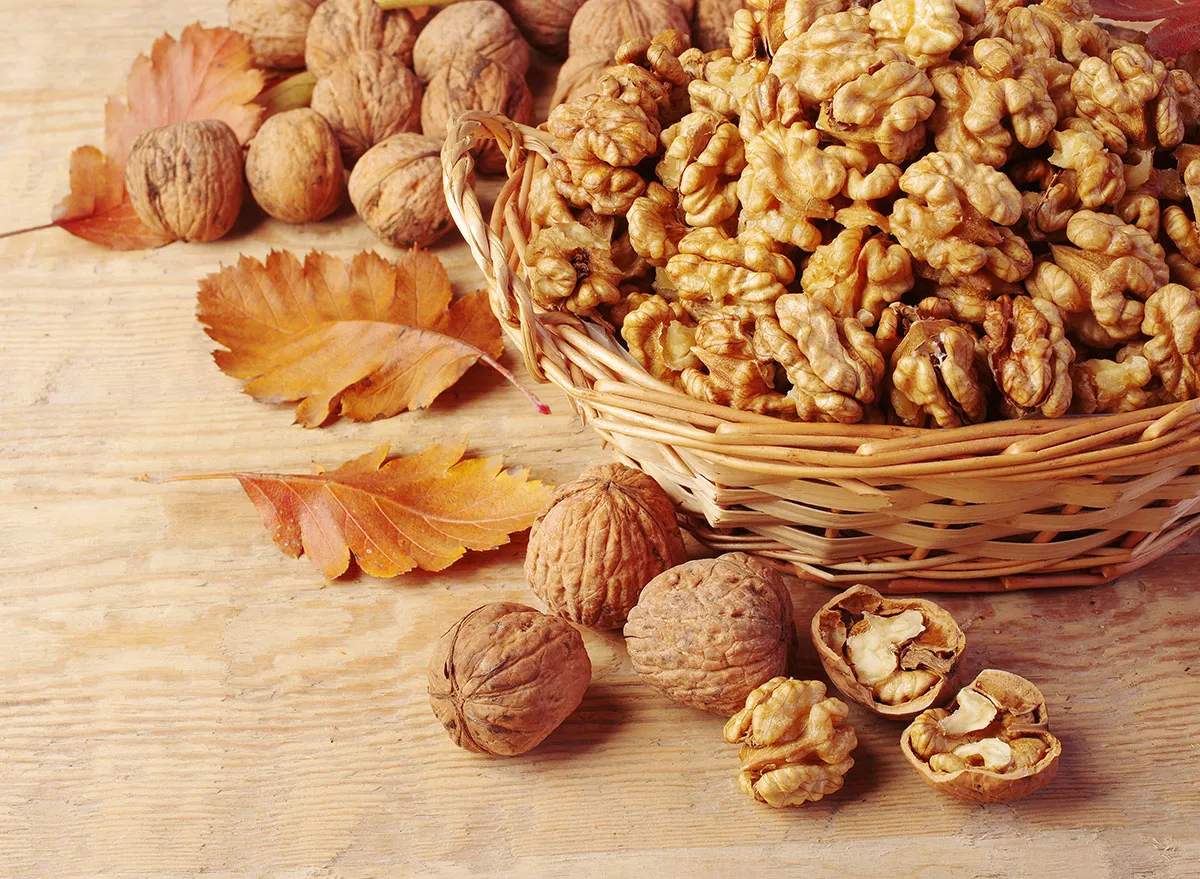
If you are a major walnut-eater, you may want to hold off on taking an iron supplement or eating iron-rich foods at the same time as your nutty indulgence.
Walnuts contain phytic acid, a compound that can inhibit the absorption of iron. And although they aren't the nut with the highest concentration of this acid, (we're looking at you, Brazil nuts!), they do contain some and it should be taken into account when you eat them.
Iron isn't the only mineral that phytic acid blocks your absorption of. This acid can also inhibit the absorption of calcium and zinc too, depending on how much you are actually eating.
If you are concerned about your nutrient absorption, there is no need to consider cutting walnuts out of your diet completely. Simply time your walnut-rich meal or snack so you are not eating it at the same time as your iron-rich food.
You may have a reduced risk of type 2 diabetes.
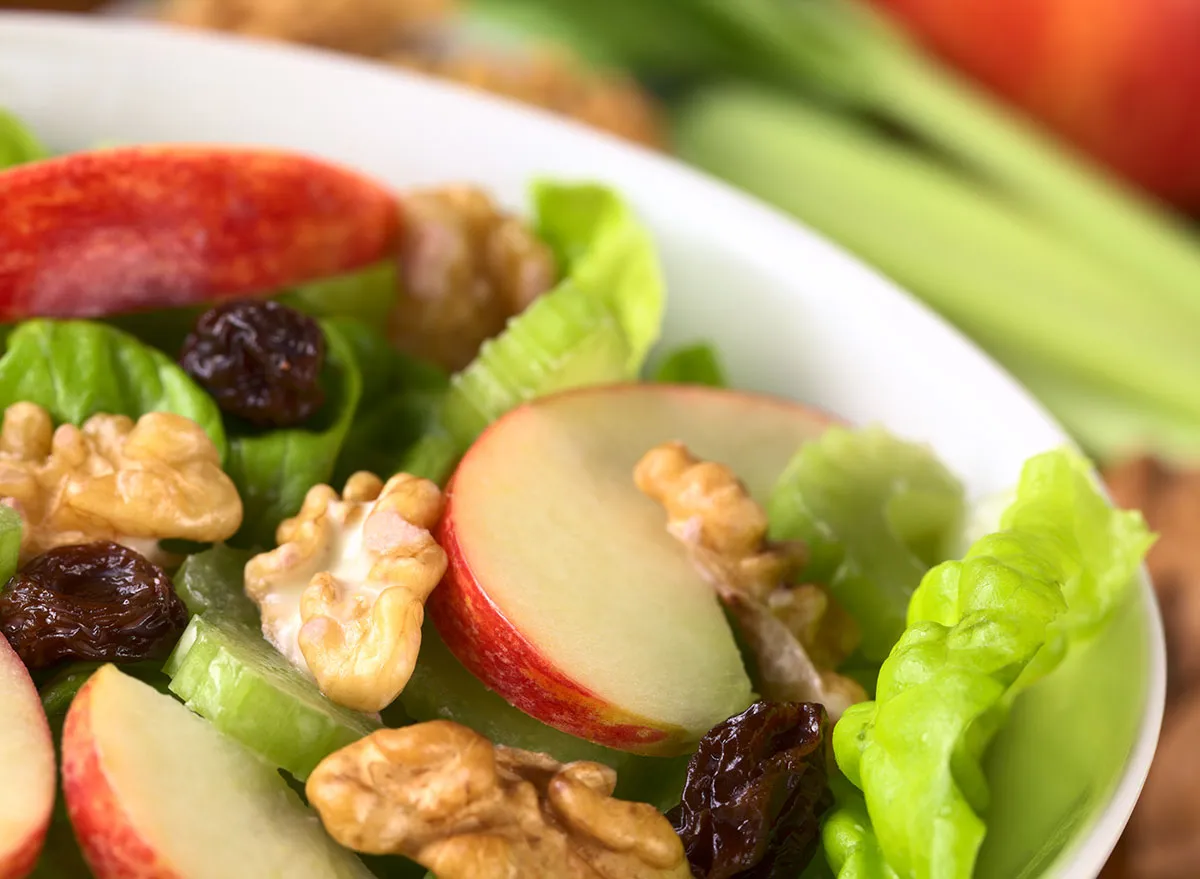
Higher walnut consumption is associated with a significantly lower risk of type 2 diabetes in women, according to a study published in the Journal of Nutrition.
Compared with other nuts, which typically contain a high amount of monounsaturated fats, walnuts are unique because they are linked to a positive effect on insulin resistance, and therefore may help reduce the risk of developing type 2 diabetes.
You may experience medication interactions.
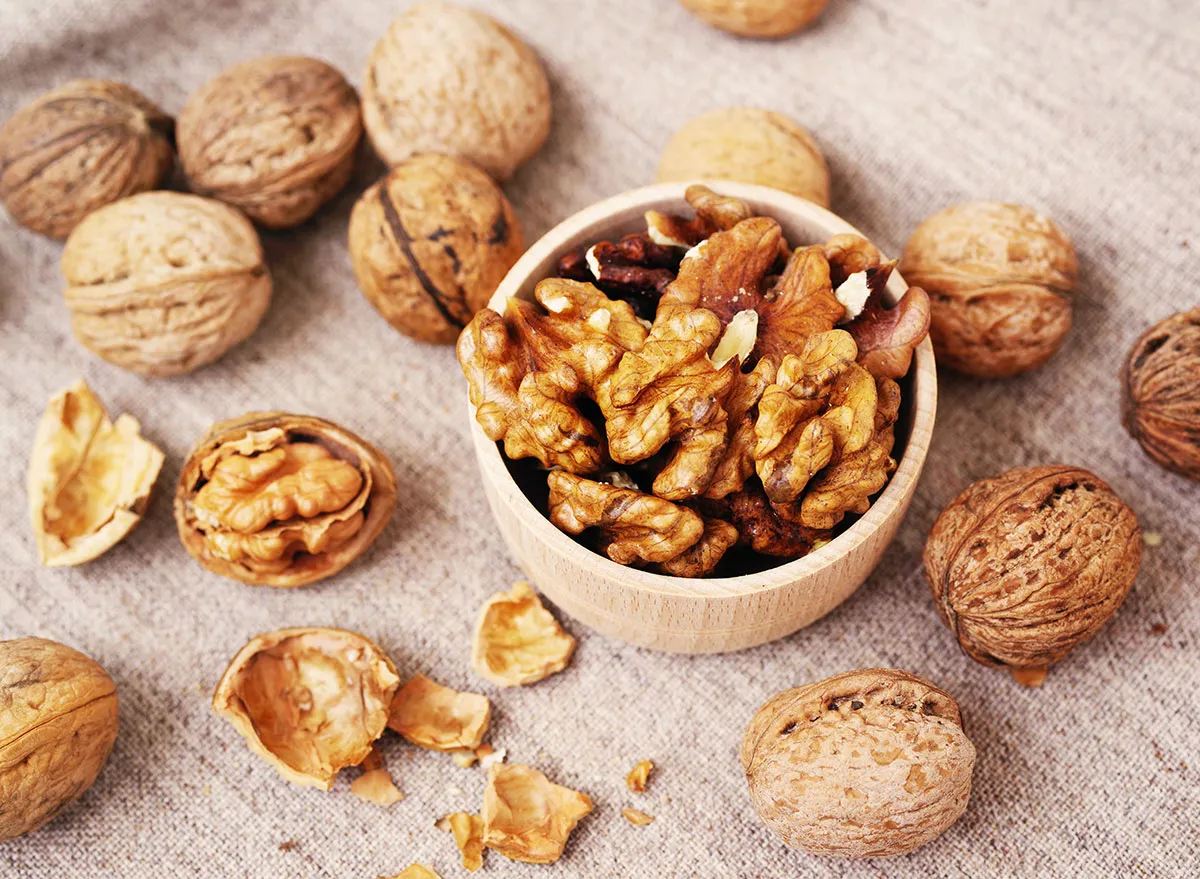
If you are taking a medication that treats hypothyroidism and you eat walnuts consistently, your medication may be a touch less effective.
If you have any concerns, simply raise them with your doctor. It may take a dose adjustment to give your body what it needs.
You may feel satisfied after you eat.
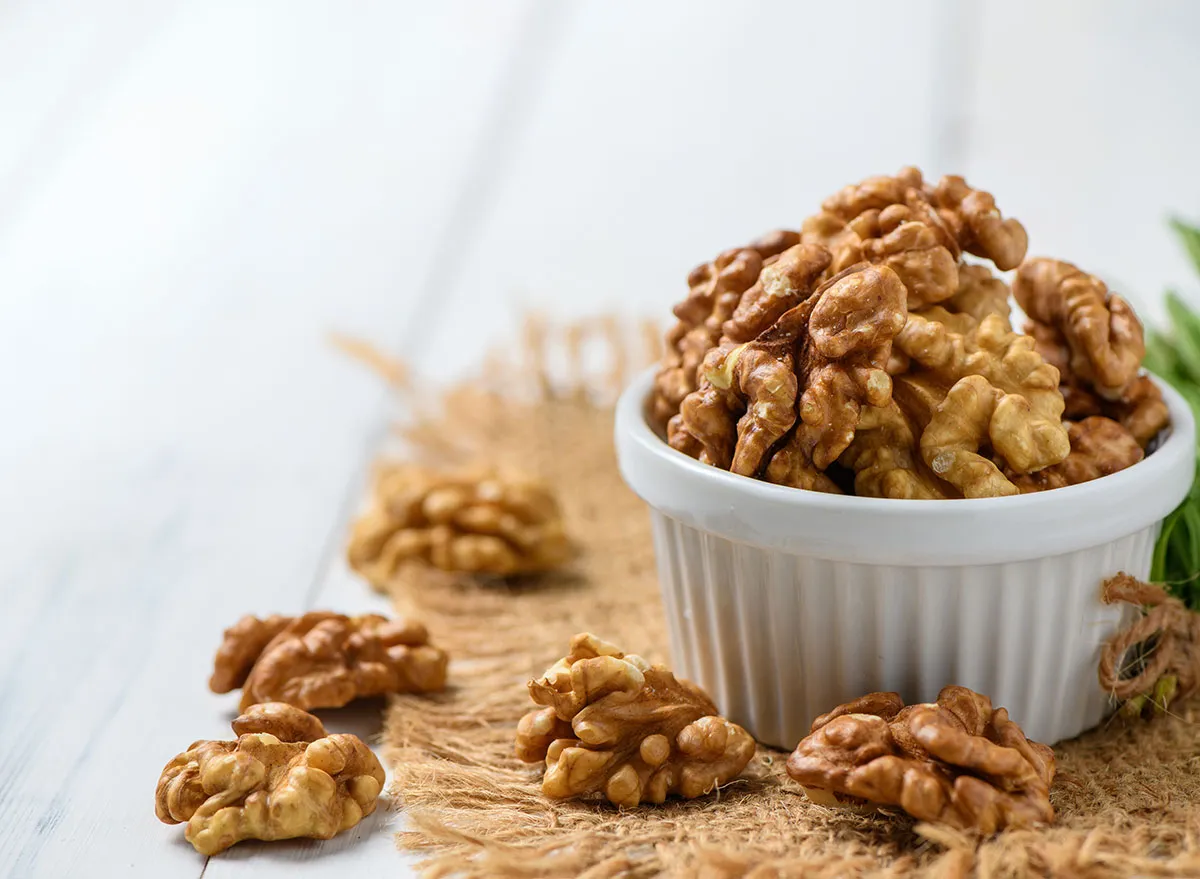
Walnuts contain the trifecta of satiating nutrients—protein, fiber, and healthy fat. Including walnuts along with your oatmeal, trail mix, or other recipes may give you some extra staying power and help you feel satisfied for a longer period of time.
Read this next:

